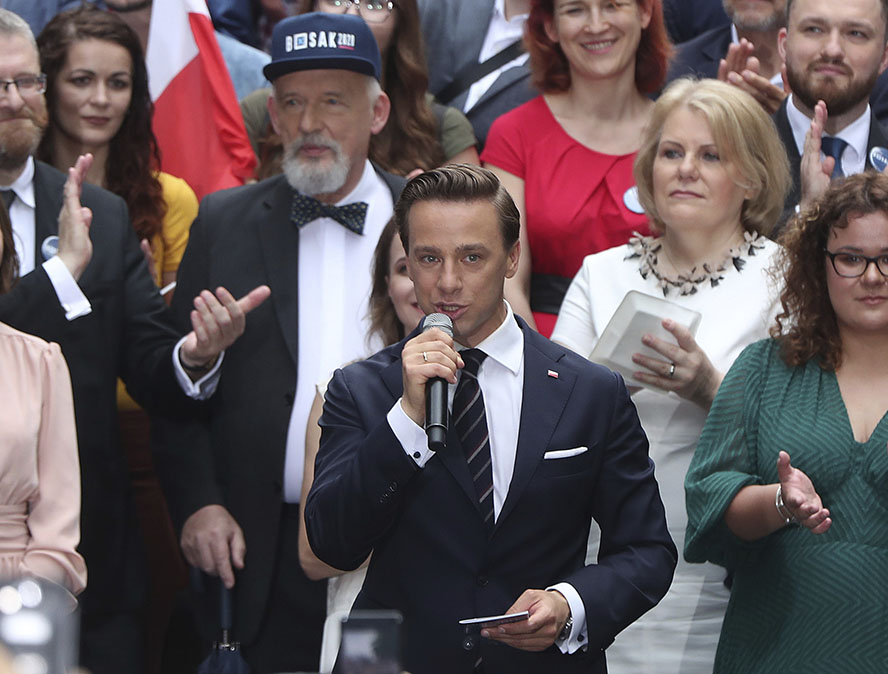One of the leaders of the Polish right-wing party Confederation and former presidential candidate MP Krzysztof Bosak, blames both the Polish and Hungarian governments for having failed to veto the conditionality mechanism during the debate over the EU budget. This mechanism was activated on Sunday by the European Commission against Hungary. €7.5 billion, equalling 65 percent of the money that was supposed to be allocated to Hungary, will be blocked pending confirmation of the decision in a qualified majority vote in the European Council.
Commenting on the commission’s decision on Hungary, Bosak called it hypocritical but opined that the root of the problem was that Poland and Hungary had allowed the conditionality mechanism through, which basically makes EU funds conditional on following what Brussels wants, giving EU institutions tremendous leverage over conservative governments.
[pp id=7178]
As Remix News previously reported back in 2020, Hungary and Poland gave up their veto rights in what turned out to be a historically disastrous move for both nations. Although both conservative governments tried to play off the move as a “victory” that would unlock billions in funds from the EU’s Recovery Fund, even that funding has now been frozen. Hungary, in particular, is now looking at additional billions in funding cuts on top of the frozen recovery fund money.
Bosak argues that the conditionality mechanism was always going to be used to punish governments that do not support left-wing and liberal values as the only “European values.”
The MP says that due to Poland and Hungary’s failure to veto the mechanism, they are now engaged in a “risky game” in which they will be the losers, according to a report from Polish news outlet Do Rzeczy. The mechanism is a novelty that did not have to be approved. Bosak accused both Budapest and Warsaw of “hubris” in thinking they could both “outplay” Brussels Eurocrats using lawyer’s tricks.
[pp id=43027]
Bosak is now pessimistic on the ultimate outcome because EU institutions have the upper hand. He argues that in the end, it is EU courts that interpret EU law and not member states. Currently, the consensus in EU institutions is that rebel states have to be “dealt with.”
Asked about Prime Minister Mateusz Morawiecki’s assurances that Poland will resist any actions by EU institutions that try to deny member states’ access to EU funds, Bosak replied that he does not believe in a single word the prime minister says.
“He lied about what Poland was doing in the EU so many times. We can only judge him by deeds and not words,” said Bosak.
Morawiecki has been criticized for failing to veto the conditionality mechanism within the ruling bloc. He has also recently been heavily criticized for agreeing to a set of milestones set by the European Commission for Poland to be able to access the EU Recovery Fund. The European Commission disputes whether Poland is abiding by these milestones.





